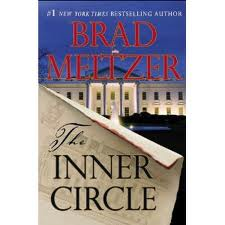 The Librarians is an American fantasy-adventure television show that premiered in 2014. If the title sounds familiar, it should! This show is a direct spin-off of The Librarian film series starring Noah Wyle as Flynn Carsen. (Look below for the list of The Librarian movies available for check-out).
The Librarians is an American fantasy-adventure television show that premiered in 2014. If the title sounds familiar, it should! This show is a direct spin-off of The Librarian film series starring Noah Wyle as Flynn Carsen. (Look below for the list of The Librarian movies available for check-out).
This television series begins by introducing viewers to Eve Baird, a NATO agent who bumps into the librarian Flynn Carsen, a meeting that sends the two off on a new journey together. Baird becomes the librarian’s new guardian and, after a quick and dirty introduction to the Library and its magic, is immediately helping Flynn on a rescue mission. It turns out that someone is killing off potential Librarians and they need to be stopped.
Hijinks ensue and we soon find Flynn off to the find the Library after it disappears and is lost in time and space in an effort to save itself from the Serpent Brotherhood. Baird is left to protect the new Librarians and help Jenkins, the caretaker of the Library’s branch office, train the newbies. Meet Jacob Stone, Cassandra Cillian, and Ezekiel Jones: three people who were invited by the Library to interview for the Librarian position that was ultimately given to Flynn Carsen after the three didn’t show up for their auditions. They are each geniuses in their own rights with quirks and specialized knowledge that allow them to solve problems and escape from tricky situations seemingly at the last moment. Throughout the first season, this foursome, plus Jenkins at times, finds themselves set off on adventures to rescue ancient mysterious artifacts. These artifacts have magical powers and either the evil Serpent Brotherhood wants to snatch them up for themselves or they are somehow disrupting normal everyday life. Either way, this show is rife with comedic and stoic moments as the Librarians rush to solve problems, work together, learn new things, save the world, and keep magic alive.
This show is full of history lessons and quirky/off-the-wall humor, much like The Librarian movies are. When you think you are just enjoying a new television show, you’ll realize that you are in fact learning something new, whether it’s about Nikola Tesla, Shakespeare, King Arthur, Santa, Egyptian Gods, the minotaur, or a variety of other historical, mythical, or magical things. This show is full of librarians after all, so you’re going to learn something new!
Once you finish the first season, be sure to go and put the second season on hold! (The third season is still on television.)
This television show is based on/is a direct spin-off of The Librarian film series starring Noah Wyle. This is a series of three movies: The Librarian: Quest for the Spear, The Librarian: Return to King Solomon’s Mines, and The Librarian: Curse of the Judas Chalice.










 It often surprises people that they can call (or email or IM) our reference desk and ask us virtually anything and we will do our utmost to find an answer.
It often surprises people that they can call (or email or IM) our reference desk and ask us virtually anything and we will do our utmost to find an answer.